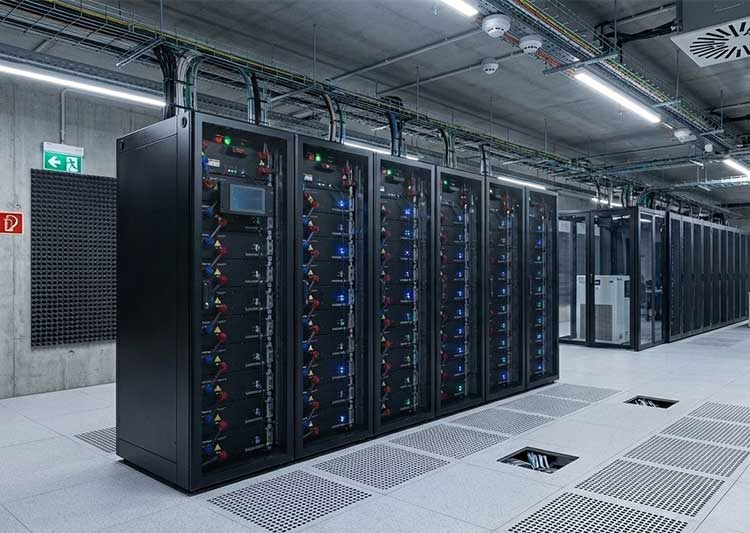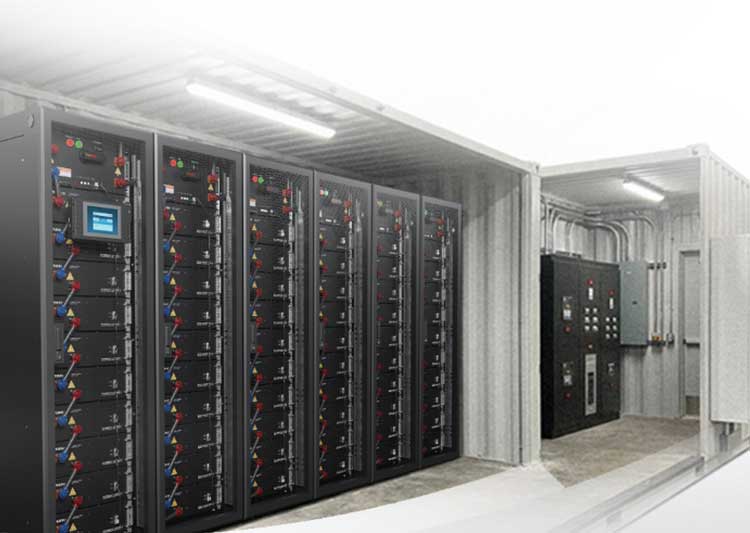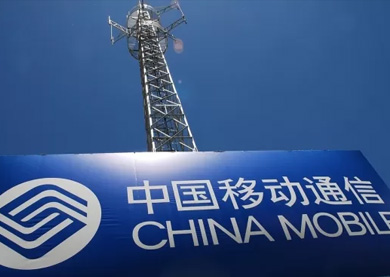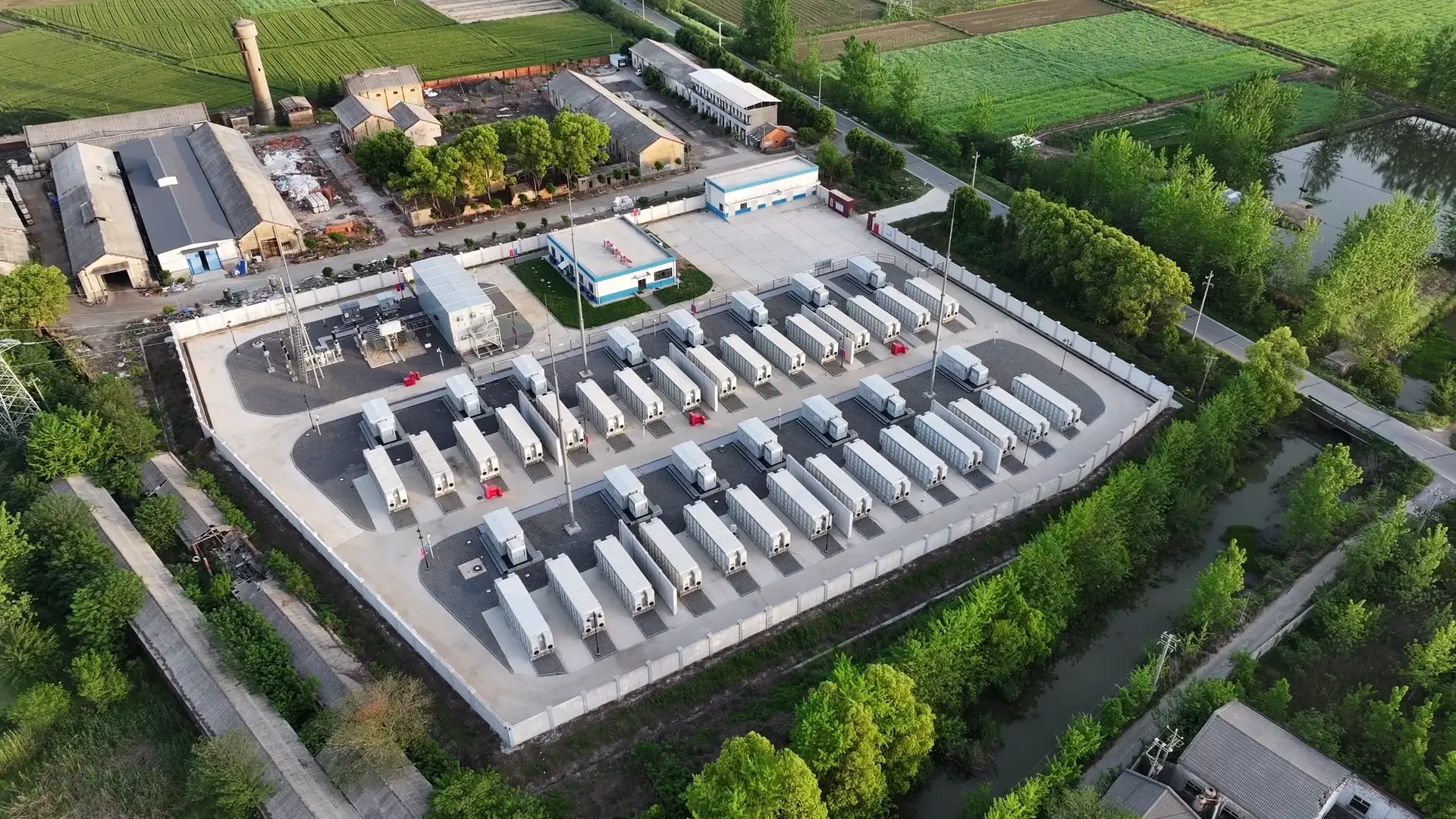As artificial intelligence (AI) continues to evolve, data centers worldwide are experiencing an unprecedented surge in computing power demands. AI training models, GPU clusters, and large-scale data analytics require stable, high-density, and uninterrupted power supply. Any power fluctuation, even for a few milliseconds, can interrupt AI workloads or cause data loss.
Uninterruptible Power Supply (UPS) systems play a critical role in ensuring reliable operation for these power-hungry facilities. Modern lithium UPS battery systems, with their high energy density, fast response, and intelligent management, are becoming the preferred solution for next-generation AI data centers.
Challenges in Powering AI and Data Centers
AI servers and high-performance computing (HPC) workloads are transforming the way data centers operate, but they also introduce a new set of challenges for power systems. As computing intensity increases, the demand for stable, efficient, and scalable backup power becomes more critical than ever.
1. High Power Density
AI and GPU-based servers consume far more power than traditional IT equipment—often reaching 30–60kW per rack. This level of energy demand requires UPS systems that can deliver rapid, stable, and high-power output without any performance drop. Power interruptions or voltage fluctuations, even for a few milliseconds, can disrupt AI model training or cause costly downtime.
2. Dynamic Load Spikes
AI workloads are not constant. During model training or data inference, power consumption can fluctuate sharply within seconds. These sudden load variations require a UPS system capable of instant response and precise voltage control to keep the equipment running smoothly and prevent system instability.
3. Energy Efficiency
As data centers expand, energy efficiency has become a top priority. Operators are working to improve their Power Usage Effectiveness (PUE) and reduce operating costs. This pushes UPS systems to achieve higher conversion efficiency and minimize energy losses during both normal operation and battery charging cycles.
4. Space Constraints
Modern data centers are becoming increasingly dense, with more servers and storage devices packed into limited space. This creates a strong need for compact, lightweight, and modular UPS battery systems that can deliver high energy in a smaller footprint while still supporting easy expansion as capacity grows.
Advantages of Lithium UPS Batteries for AI Workloads
To meet the power demands of AI-driven data centers, lithium-based UPS battery systems offer a significant leap forward in performance, reliability, and efficiency. Below are the key advantages that make them ideal for powering AI and high-performance computing environments.
1. High Power Density and Fast Response
Lithium batteries deliver much higher power density, allowing them to supply strong bursts of energy instantly during peak loads. Their rapid charge and discharge capability ensures a stable and consistent power flow, even when AI workloads fluctuate dramatically. This enables uninterrupted operation of GPUs and servers during intensive data processing or model training.
2. Longer Lifespan and Lower Maintenance
Lithium UPS batteries can last up to 2–3 times longer than traditional lead-acid batteries. They support thousands of charge and discharge cycles with minimal capacity loss. Their low maintenance requirements reduce both labor and downtime, making them a cost-effective long-term investment for large-scale data center operations.
3. Improved Energy Efficiency
Efficiency is a key metric in AI data centers where power consumption is massive. Lithium UPS systems achieve greater energy conversion efficiency, which reduces waste heat and contributes to a better Power Usage Effectiveness (PUE) ratio. This directly helps operators lower electricity costs and move toward greener, more sustainable operations.
4. Compact, Modular Design
Lithium batteries offer a smaller footprint while delivering higher energy output. Their modular design makes it easy to scale power capacity as data center workloads grow—without major system modifications or downtime. This flexibility is especially valuable in AI environments where computing demands evolve rapidly.
5. Intelligent Monitoring and Safety Management
Modern lithium UPS systems are equipped with an advanced Battery Management System (BMS) that provides real-time monitoring of voltage, temperature, and state of charge. The BMS also offers fault detection, predictive maintenance, and remote monitoring, ensuring safe and stable operation while reducing the risk of unexpected failures.
Benefits Summary
Integrating lithium UPS batteries into AI and high-performance computing facilities offers a range of key benefits that directly address the challenges of modern data center operations:
1. Reliable Power Stability
Lithium UPS batteries provide consistent voltage and uninterrupted power output, ensuring that sensitive AI servers and GPU clusters remain fully operational even during sudden load spikes or grid disturbances.
2. Enhanced Safety
Equipped with an advanced Battery Management System (BMS), lithium UPS systems actively monitor voltage, current, and temperature. This intelligent control protects against electrical faults, overheating, and other potential hazards, keeping both equipment and personnel safe.
3. Extended Battery Life
With superior cycle performance and minimal capacity degradation, lithium batteries offer a longer service life compared to traditional lead-acid systems. This reduces the frequency of replacements and lowers overall maintenance efforts.
4. Higher Efficiency
Lithium UPS solutions feature faster charging, higher energy efficiency, and reduced heat generation, helping data centers optimize power usage, lower operational costs, and improve their environmental footprint.
5. Flexible Scalability
The modular design of lithium UPS batteries allows operators to easily expand capacity as AI workloads increase. This scalability ensures that the power infrastructure can grow alongside evolving data processing demands without costly system overhauls.
By combining stability, safety, efficiency, longevity, and flexibility, lithium UPS batteries provide a future-proof power solution for the next generation of AI-driven data centers.
Conclusion
In the era of AI-driven computing, power reliability is more critical than ever. Lithium UPS battery systems deliver the high power, efficiency, and intelligence required to support advanced AI and data center environments.
By adopting these next-generation solutions, operators can reduce operating costs, extend system life, and ensure uninterrupted performance for the world’s most demanding digital workloads.
Explore Vision’s lithium UPS battery solutions today to power your data center for the AI future.




























 2025-10-20
2025-10-20 Name
Name Tel
Tel Email
Email Country
Country Company
Company Information
Information